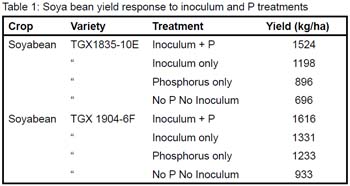Background
Sasakawa Global 2000 is an international NGO established in 1986 in Sudan and Ghana by late Ryoichi Sasakawa (a Japanese Philanthropist) with Nobel Laureate, Dr Norman Borlaug and former US President Jimmy Carter. SG2000 works in close collaboration with national agricultural extension services, improving their field operational effectiveness and strengthening their human resources. Based on the success of the first two countries in Africa that Federal Government of Nigeria invited SG2000 and signed a Memorandum of Understanding in 1992. Field activities started in 1993 and SG2000 works with and through the state agricultural development programmes to deliver proven technologies to smallholder farmers. SG2000 follows the value chain approach in disseminating technologies under five thematic areas: crop production enhancement and extension, postharvest handling and agro-processing, public-private partnerships and market access, human resource development and M&E. Training and close supervision are key to the success of SG2000. In the course of its work, SG 2000 partners with a number of institutions and programs; notable among them is the N2Africa project, which started in 2010 in Kano State.
Activities with the N2Africa project
SG2000 carried out technology dissemination to farmers as an N2Africa partner; disseminating the best agronomic practices in the production of some of the major leguminous crops (cowpea, groundnut and soyabean); specifically conducting trainings and demonstration on the use of inoculants and SSP fertilizer, with a view to increasing yield and improving soil fertility through effective nitrogen fixation. The partnership has directly reached 26,406 farmers over the three years period of the project. We demonstrated use of inoculum on soya bean, combination of inoculus and SSP on soya beans, varietal introduction and evaluation on cowpea ad groundnut and use of SSP on legumes. Based on evaluation carried out by extension agents guided by SG2000/N2Africa state coordinator using pair wise ranking and/or matrix system at each community, it was discovered that the treatment of inoculant+phosphorus on soyabean gave higher yields than the other 3 treatments (table1); the groundnut variety Samnut 23 was superior over RMP 12 (Table 2) and the local variety in terms of grain and fodder yields across all locations. On the cowpea varietal demo plots, 60% of the farmers selected IT90k 277-2 due to its high grain and fodder yields compared to the other varieties while about 40% of farmers selected IT97K 499-35 over others due to its tolerance to the witchweed, Striga. The N2Africa concepts and approach fit well with the SG2000 Crop Production Enhancement and Extension Theme in transferring proven technologies to resource poor farmers by providing technological options. Farmers observed the benefits of the treatments, especially on crop vigour and final grain yields. Consequently, farmers were able to observe and make decisions on the promising options. This impacted significantly on the skills and productivity of the participating and non-participating farmers. Farmers now appreciate the use of fertilizers, especially SSP as well as the positive effects of the rhizobium inoculant on soyabean productivity.
 |
 |
 |
Left: Participants discussing and exchanging ideas at different locations on the demo farm Right: Demo plots under MARKETS II indicating inoculated (left) versus uninoculated (right) in Kaduna State |
 |
Scaling up and out
N2Africa/SG2000 collaboration succeeded in demonstrating the positive effect of inoculants on soyabeans and this is now a new, proven technology for soya production in farmers’ fields. It is now being demonstrated in three LGAs of Kaduna State under the USAID/MARKETS II soyabean value chain project, where SG2000 serves as a service provider. Again, the use of inoculants has shown the difference between the treated plots and untreated plots and MARKETS II is likely to promote its use by farmers in the state. In addition, inoculants have been used for soyabean seed production in Jigawa for 2013 season under the routine SG2000 extension activities. A major challenge now is the supply of the inoculum in commercial quantities as farmers have started asking where they can purchase the product.
Dr Sani Miko
